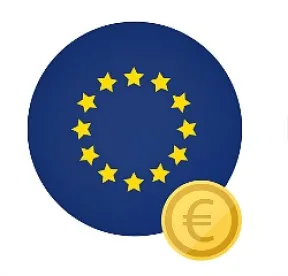On 18 June 2020, the European Parliament formally adopted the EU’s Sustainability Taxonomy Regulation. The aim of the Regulation is to provide an EU-wide framework for classifying economic activity as environmentally sustainable (an overview of the Regulation can be found in our memo on the subject). Adopting a consistent framework is expected to reduce “greenwashing”, where financial products are marketed as environmentally sustainable without sufficient factual basis for their claims, improving the efficiency with which private investment can be made in sustainable projects.
The Objectives and Detailed Screening Criteria. The Regulation establishes six environmental objectives as the basis of the taxonomy. They are (i) climate change mitigation, (ii) climate change adaptation, (iii) sustainable use and protection of water and marine resources, (iv) transition to a circular economy, including waste prevention and increasing the uptake of secondary raw materials, (v) pollution prevention and control and (vi) protection and restoration of biodiversity and ecosystems.
The Regulation requires the European Commission to define technical screening criteria for each objective. The Taxonomy for climate change mitigation and climate change adaptation should be established by the end of 2020, in order to ensure its full application by end of 2021. For the four other environmental objectives, the Taxonomy should be established by the end of 2021 and will apply by the end of 2022.
Disclosure Timing. Companies that fall under the scope of the Non-Financial Reporting Directive[1], i.e. certain large listed companies, banks and insurance companies with more than 500 employees, will be required to make Taxonomy disclosures as part of their non-financial statements. Financial market participants as defined in the Disclosure Regulation[2] will be required to disclose the alignment (or not) of their products with the Taxonomy in pre-contractual disclosures and in periodic reports. The first company reports and investor disclosures using the EU Taxonomy are due at the start of 2022.
UK May Not Choose to Align. At the time the first disclosures are required to be made under this EU Regulation, the UK will no longer be a member of the European Union. The Financial Times reported that the UK Treasury is reserving judgment on whether to implement the rules in domestic law, pending the publication of the full detailed screening criteria. Acknowledging the importance both of avoiding greenwashing and promoting globally consistent standards, Mr John Glen, economic secretary to the Treasury and City Minister nonetheless told a Parliamentary Committee the Treasury is not yet willing to comment on the extent to which it will align with the EU.
Comment. The appetite to invest sustainably exists at all levels of the financial ecosystem (see our recent work on one of the world’s first impact-focused subscription finance facility). Allowing private investors to understand and compare the environmental sustainability features of companies and investments is an important step in facilitating this. A consensus has not yet arisen on how best to report on sustainability efforts, leading to a so-called “alphabet soup” of reporting standards, but this EU Taxonomy goes some way to defining the goals of those efforts.
1 Directive 2014/95/EU
2 Regulation 2019/2088/EU.






 />i
/>i

